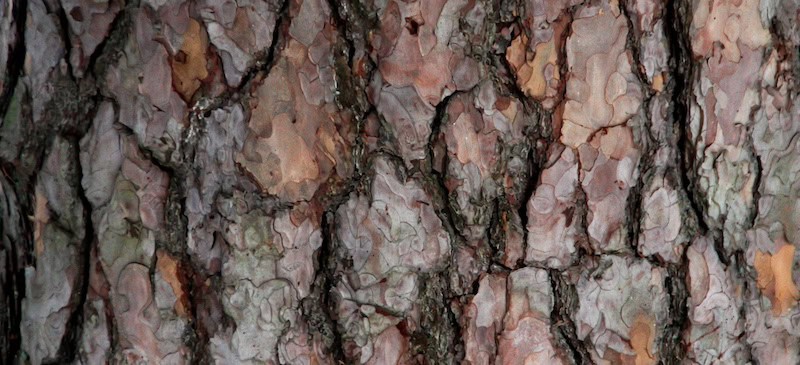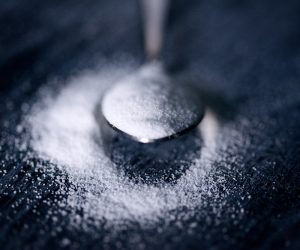
7 Pine Bark Extract Benefits, Including for Skin, Hearing & Diabetes
Kyra Oliver via Dr. Axe – We all know the power of antioxidants to improve health and the high-antioxidant foods we should eat regularly. But did you know that pine bark extract, like pine oil, is one of nature’s super antioxidants? It’s true.
What gives pine bark extract its notoriety as a powerful ingredient and super antioxidant is that it’s loaded with oligomeric proanthocyanidin compounds — OPCs for short. The same ingredient can be found in grapeseed oil, the skin of peanuts and witch hazel bark.
While OPCs found in this extract are mostly known for their antioxidant-producing benefits, these amazing compounds exude antibacterial, antiviral, anticarcinogenic, anti-aging, anti-inflammatory and anti-allergic properties. As such, pine bark extract can help reduce muscle soreness and may help improve conditions relating to:
- poor circulation
- high blood pressure
- osteoarthritis
- diabetes
- ADHD
- female reproductive issues
- skin
- erectile dysfunction
- eye disease
- sports stamina
It addition, the OPCs in this extract may “inhibit lipid peroxidation, platelet aggregation, capillary permeability and fragility, and to affect enzyme systems,” which basically means it may be a natural treatment for many serious health conditions, such as stroke and heart disease.
What Is Pine Bark Extract?
Pine bark extract comes from the inner bark of the Pinus pinaster tree, most commonly found in Europe. A popular variety is the pinus maritime or the maritime pine that grows exclusively along the coast of southwest France.
In 1534, a French ship led by the famous explorer Jacques Cartier became stranded in ice near Quebec, Canada. The crew fell extremely ill from scurvy, an extreme lack of vitamin C. Cartier’s crew crossed paths with a Quebec Indian who encouraged them to drink a tea made from pine bark and needles.
Four hundred years later, a French researcher named Jacques Masquelier did some studies to understand why this natural remedy was so effective. He learned about the seemingly omnipotent antioxidant within it and how those antioxidants increase the absorption of vitamin C.
Continued research showed that the pine bark contained flavonols and bioflavonoids, which hold tissue-repairing properties. Masquelier was easily able to create a pine bark extract from materials that were otherwise known as waste.
Health Benefits
1. Lowers Glucose Levels, Improving Diabetic Symptoms
Pine bark extract has been studied in regard to its ability to help diabetic patients. A study was conducted by the Guang An Men Hospital of Chinese Medical Science Research Institute with 77 diabetes type II patients to determine if the extract of the French Maritime pine bark provided anti-diabetic effects. Patients were given 100 milligrams of Pycnogenol®, a branded version of pine bark extract, for 12 weeks, with continued anti-diabetic treatment.
The effects of the pine bark extract showed significantly lower levels of blood glucose and improved endothelial function when compared to placebo, concluding that supplementation of Pycnogenol for treating conventional diabetes may be beneficial.
2. Helps Prevent Hearing Loss and Balance
Ototoxicity is ear poisoning and can occur when exposed to certain drugs or chemicals, such as cisplatin, that damage the inner ear or the vestibulocochlear nerve. This nerve affects our balance and hearing by sending signals to the brain.
This condition can be temporary or permanent — however, some studies have indicated that pine bark extract may help alleviate these symptoms due to its high presence of antioxidants.
Thus, this powerful extract may work as a natural ear infection remedy while improving balance and preventing hearing loss.
3. Staves Off Infections
Studies have been conducted to review the effects of pine bark extract on pseudomonas infectious wounds. These wounds occur most frequently in hospitals or in those with weakened immune systems, such as after surgery. However, healthy people are not immune and can also develop mild infections, in particular after being in improperly chlorinated hot tubs or swimming pools.
In one particular study published in Research in Pharmaceutical Sciences, researchers investigated the antibacterial activity of pine bark extract essential oil on staph infections, E. coli and pseudomonas infections. The antibacterial activity was assessed indicating that the essential oil of pine bark, specifically the proanthocyanidins, were effective against P. aeruginosa, significantly inhibiting its growth.
Additionally, the results showed that the extract has significant “anti-pseudomonas activity,” making it a potential natural remedy and possible preventive measure for infections.
4. Protects the Skin from Ultraviolet Exposure
Who doesn’t want amazing skin? Pine bark extract may be the perfect treatment since it’s an antioxidant dynamo.
There is a seemingly growing problem with skin exposure to ultraviolet radiation and the confusion of how to get vitamin D from the sun while avoiding these skin-damaging rays. A review was conducted of French maritime pine bark extract, specifically using the nutritional supplement Pycnogenol.
The study provided clear evidence that Pycnogenol does, indeed, offer photoprotection — however, it came out even better than expected, showing that it may be used to reduce hyperpigmentation of human skin while improving the “skin barrier function and extracellular matrix homeostasis.”
5. Decreases Erectile Dysfunction
If you knew you could resolve your erectile dysfunction and, therefore, naturally remedy impotence issues, wouldn’t you? Erectile dysfunction has increased over the past decade or two, creating a pathway for various medications to land on the shelves of numerous medicine cabinets, but as you know, going for the natural approach can make a huge difference in overall health.
According to a Japanese study, the combination of Pycnogenolt and L-arginine may produce the results you’re looking for, making the bedroom a much happier place. Forty-seven Japanese men with mild erectile dysfunction were given supplements with L-arginine and French maritime pine bark extract over four months.
The research revealed that the sperm concentration greatly increased after about eight to 16 weeks of treatment, to include improved orgasmic function. No side effects were noted, unlike its synthetic counterpart.
6. Reduces Inflammation
Pine bark extract’s antioxidants scavenge damaging free radicals in an effort to eliminate them, ultimately preventing disease.
Studies were conducted in Turkey on subjects who underwent abdominal surgery to determine if the pine bark extract could help reduce the inflammation. They were given Pycnogenol for a period of 10 days.
The outcome showed significant healing compared to those subjects who were not given any drug or remedy, concluding that Pycnogenol may be an effective remedy for healing of surgery-related lesions.
7. Helps Increase Athletic Performance
Pine bark extract has been studied regarding its relationship to exercise performance, oxidative stress and inflammation to body that has been imposed by exercise. Research indicates that Pycnogenol provides an increase in endurance performance of trained athletes. It does this by improving the time it takes the body to reach a fatigued state through increased serum NAD+ levels.
Additionally, athletes have endured less cramping and muscle pain when using the extract. It’s likely that muscle recovery time improved as well due to the high antioxidants pine bark extract contains.

Risks and Side Effects
While most studies do not indicate major side effects, pine bark extract may cause irritability and fatigue, and could interact with other drugs. Make sure to seek out the advice of your physician prior to using pine bark extract or the branded name, Pycnogenol.
If you are taking blood thinners, do not take pine bark extract or Pycnogenol unless approved by your doctor. It’s been noted that taking OPCs and vitamin C supplements at the same time could increase blood pressure if you have hypertension.
How to Use
Pine bark extract can be found in liquid, tablet or capsule form containing 85 percent to 90 percent OPCs. It can also be found as creams, lotions or ointments, typically containing 0.5 percent to 2 percent pine bark extract.
If you choose to use Pycnogenol, follow the dosage instructions on the label. It’s best to check with your doctor about the dosage, based on the symptoms you have and other possible conditions, prior to taking either pine bark extract or Pycnogenol.
Final Thoughts
Pine bark extract offers some amazing benefits since it’s so high in powerful antioxidants. From diabetes and sexual function to sports performance and beautiful skin, pine bark extract may be worth exploring to provide results you’re looking to achieve.
Consider pine bark extract by having a conversation with your physician or a functional medicine doctor. You may want to start slow, taking smaller amounts, to ensure that your body works well with the OPCs found in pine bark extract.
Once you’re sure that you don’t have any negative reactions, you may be able to increase your dosage according to the label.
To read the original article click here.






